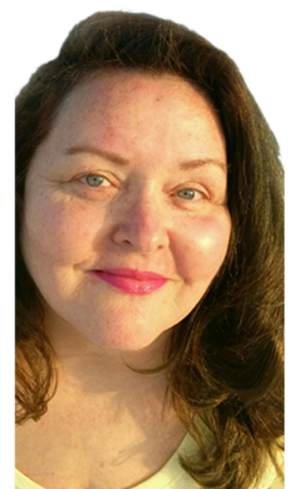What’s age got to do with it?
Published 11:46 pm Saturday, December 30, 2023

- By RA Mathews (The Rev. Mathews (BA, MDiv, JD) is a faith columnist, seminary graduate, and the author of “Reaching to God.” Contact her at Hello@RAMathews.com.)
|
Getting your Trinity Audio player ready...
|
By R.A. Mathews
‘Tis the season of New Year’s resolutions, and you might get some ideas from supercentenarians—those reaching the 100-year mark.
Jeanne Louise Calment (1875-1997) is the oldest verified person to have ever lived, according to modern records. She died at 122 eating two pounds of chocolate a week and leading a happy, active social life.
Tao Porchon-Lynch, lived to 101, and won a Guinness World Record as the oldest competitive ballroom dancer. “Eat chocolate,” she said, along with a plant-based diet.
At 98, Johanna Quaas is almost a supercentenarian and holds the Guinness World Record for oldest competitive gymnast. You must see Quaas in action on the parallel bars. She also touts a plant-based diet and lots of exercise.
But is reaching 101 or 122 extraordinary given Old Testament ages? Wasn’t everyone back in the day 900 years old?
That’s an interesting question. What was the lifespan at the time of Abraham, who lived at roughly 2,000 B.C.?
- 900 years
- 500 years
- 300 years
- 175 years
Take a guess and we’ll see what Scripture says.
It’s easy to think of Old Testament characters as really old people. Genesis begins with these lifespans.
“… Adam lived … 930 years … Seth (Adam’s son) … 912 years … Enosh (his son) … 905 years … Kenan (his son) … 910 years … Mahalalel (his son) … 895 years …” and on to Jared, Enoch, Methuselah, Lamech, and Noah. Noah lived 950 years. (Genesis 5; 9:29)
At that point, God became so angry that He decided to start over.
“Now the earth was corrupt in the sight of God, and the earth was filled with violence … Then God said to Noah, ‘The end of humanity has come before Me … Make for yourself an ark…” (Genesis 6:11-14)
Following the flood, Scripture takes us from Noah to Abraham, and life expectancy changes. Shem (Noah’s son) lived 600 years and his son lived 442 years. After four more generations, each living between the ages of 433 and 230, there was Nahor, who lived 148 years. Nahor fathered Tera, who lived 205 years, and his son was Abraham, who lived 175 years. (Genesis 11:10-32, 25:7)
So, by the time of Abraham, lifespans had changed dramatically and we’re not even a quarter of the way into Genesis.
The answer is No. 4, “175 years.” That figure isn’t isolated. Abraham’s son lived to be 180 and his grandson lived to be 147.
Let’s see if that changes. After roughly 1,000 years pass from Abraham to King David, what do you think the lifespan was then in the Old Testament?
- 500 years
- 200 years
- 100 years
- 70-80 years
Take a guess and we’ll see what Scripture says.
By the time of King David, life expectancy had reached modern-day levels. “The years of our life are seventy, or even by reason of strength eighty…” (Psalm 90:10)
The correct answer is No. 4, “70-80 years.”
David died at 70, but most of the kings who followed David didn’t do that well. David’s grandson, King Rehoboam, was 58, Jehoash was 47, Amaziah and Hezekiah were 54, and Josiah was 39.
So, even in terms of Old Testament lifespans, Calment, Porchon-Lynch, and Quaas are extraordinary. But age isn’t what makes them so engaging. It’s that none of these women lived out her days in a nursing home.
Last September, NPR reported on a book and Netflix series about “Blue Zones”—five communities with thriving centenarians “largely free of afflictions like heart disease, obesity, cancer and diabetes.”
Here are some of their secrets:
- They eat a plant-based diet of grains, fruits, nuts, and vegetables.
- They enjoy quality sleep.
- They’re physically active. Porchon-Lynch said moving your spine will keep you from getting old. That means stretching.
- They lead low stress lifestyles. “Busyness” might be a status symbol for some but not in the Blue Zones.
- I examined the Blue Zones and four of the five appear committed to Christ, while the fifth focuses on meditation, which Christians are commanded to do. Yet many don’t understand meditation. Take a class. It will reward you with the best sleep ever.
- A positive mindset is valuable. Tao Porchon-Lynch said, “I have never been afraid of anything, so it’s hard to stop me.” And Jesus said, “Do not be afraid…” (Luke 12:32)
I hope you find a New Year’s resolution in there.
Two years before Porchon-Lynch died, CBS asked her “Do you feel 99?” She said, “I don’t feel any age at all.”
That’s the most valuable gift my grandmother gave me. She didn’t know her age—she didn’t think it was important.





